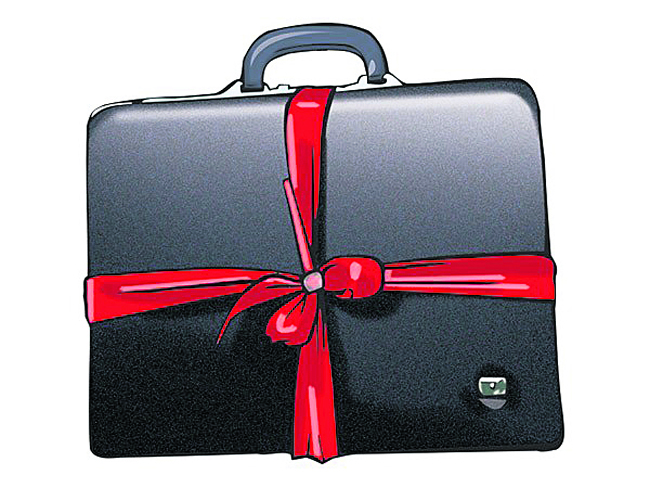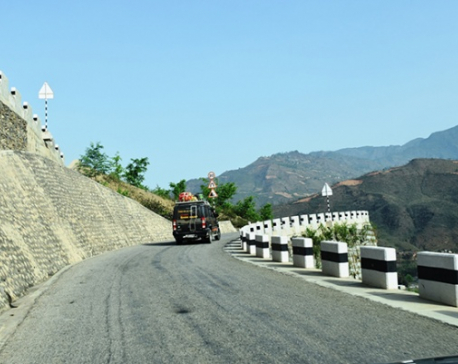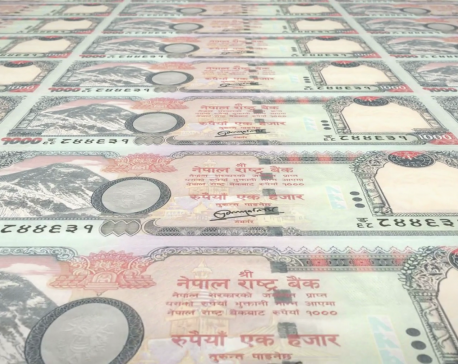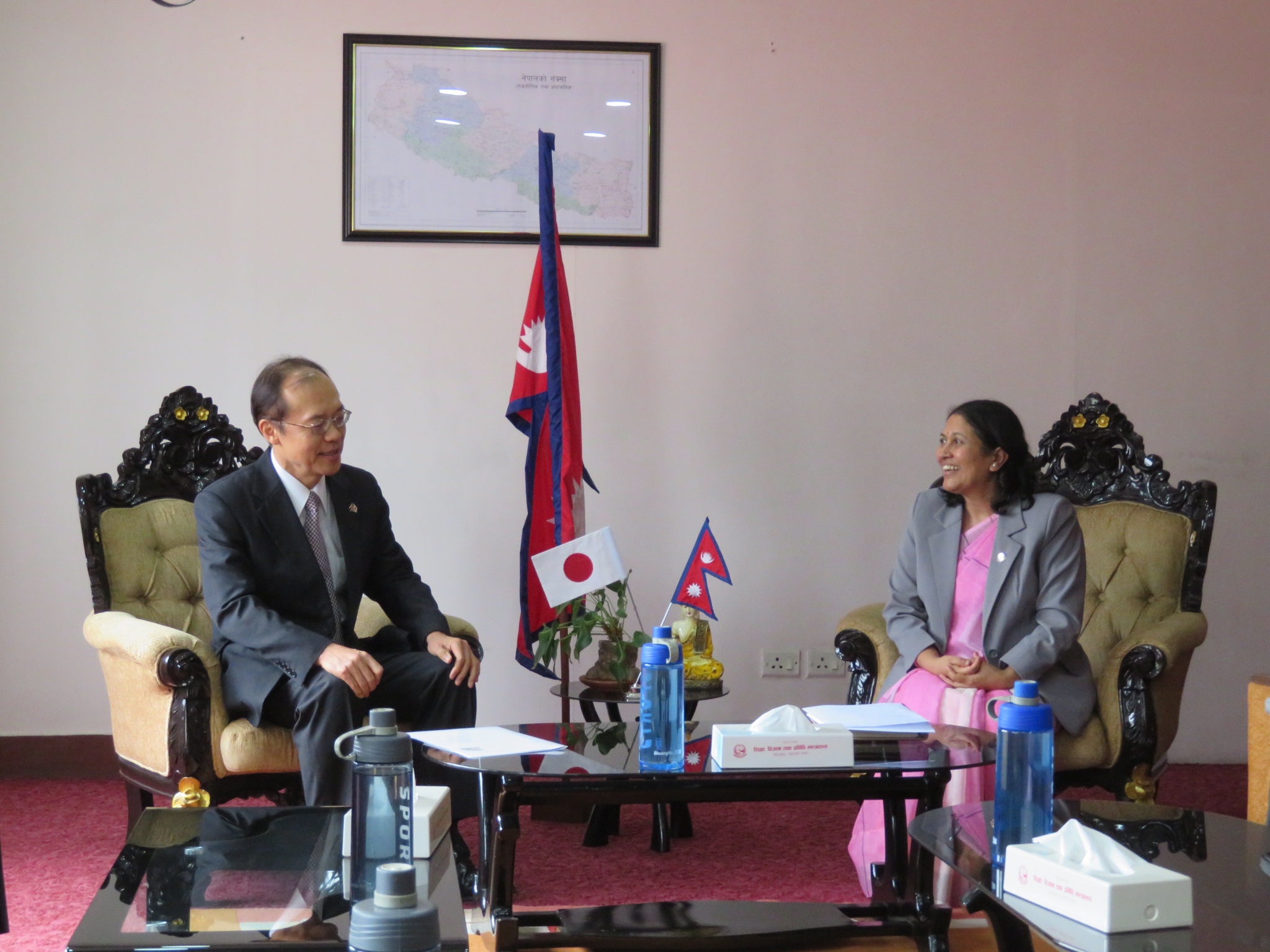
OR
Experts urge govt to bring forth a realistic budget for the next FY
Published On: April 8, 2024 07:35 AM NPT By: Republica | @RepublicaNepal

‘Targets for excessive revenue collection and unrealistic economic growth will only exert pressure on the private sector’
KATHMANDU, April 8: Economists have urged the government to come up with a realistic budget while announcing the financial plan for the next fiscal year.
Speaking at a ‘Pre-budget Discussion’ organized by the Management Association of Nepal on Sunday, the sector’s analysts sought the government to render priority on not inflating the size of budget while considering the realistic figures of revenue collection and economic growth. “The inflated revenue size and unrealistic target of economic growth invite instability in the economy,” said Professor Ram Prasad Gyanwali, an economist and former head at the Central Department of Economics, TU.
The Ministry of Finance has started preparation for formulating the annual budget for the fiscal year 2024/25. Despite facing wide criticism from various segments, the government has got the ceiling of the budget at Rs 1.8 trillion by the National Planning Commission.
The government has earmarked Rs 436 billion to pay the interest and for the repayment of the principal on public debt for the next fiscal year. The government this year had estimated to collect revenue of Rs 1.422 trillion. Later on, the projection was reduced to Rs 1.18 trillion after the government collected only 77 percent of the targeted amount in the first half of the current fiscal year.
Likewise, the government had estimated to achieve a growth rate of six percent this year. But the World Bank has projected that growth rate at only 3.3 percent, while the National Statistics Office has estimated it to be only four percent.
Gyanwali said the targets for exorbitant revenue collection and economic growth rate build unnecessary pressure on the private sector too. “This will decelerate economic activities rather than helping them to flourish,” he added.
According to the latest report of the National Statistics Office (NSO), the primary sector that includes agriculture, fisheries and mines contributes 24.6 percent to the country’s gross domestic product (GDP). There is a big transformation from the agricultural sector to the service related businesses, which account for 62.4 percent shares in the GDP.
Urging the government to prioritize investment in the manufacturing sector, Gyanwali said the gap seen in the manufacturing sector has failed to create employment opportunities in the country. “If the manufacturing sector flourishes, it will help expand the backward linkages, ensuring more employment opportunities in the economy,” said Gyanwali, adding that the government should come up with policies to tap the skills of the migrant workers.
The government is said to be relying on the improper macroeconomic data due to lack of proper mechanism to estimate the accurate data. Ishwari Prasad Bhandari, former chief statistical officer of the NSO, said there are some flaws underlying the processing of the national level statistics due to various reasons. “This has hampered in enforcing effective planning and budget formulation,” said Bhandari.
Gunakar Bhatta, executive director of Nepal Rastra Bank (NRB), sought the need for bringing in policies for institutional reform. “This is the main driving force of the economy, which could even help in the reverse migration process,” said Bhatta, giving examples of neighboring countries, which are achieving impressive growth rates in recent years.
Deputy Governor of the NRB Neelam Dhungana stressed on the need for promoting confidence of the private sector to achieve higher economic growth rate. “This will provide an opportunity to materialize benefits out of the falling interest rates and excessive liquidity with banks,” she added.
You May Like This

Cabinet approves budget for FY 2022/23
KATHMANDU, May 29: A Cabinet meeting on Sunday approved the budget for the fiscal year 2022/23. Finance Minister Janardan Sharma will... Read More...

Transportation sector gets priority in budget
KATHMANDU, May 30: The government has accorded top priority to transportation sector, setting aside Rs 163 billion to build transport... Read More...

Govt to flood Rs. 1.35 billion in last 4 months of current FY
KATHMANDU, March 18: The government plans to flood NPR 1.35 billion in construction and development in the last quarter of... Read More...











Just In
- Japanese envoy calls on Minister Bhattarai, discusses further enhancing exchange through education between Japan and Nepal
- Heavy rainfall likely in Bagmati and Sudurpaschim provinces
- Bangladesh protest leaders taken from hospital by police
- Challenges Confronting the New Coalition
- NRB introduces cautiously flexible measures to address ongoing slowdown in various economic sectors
- Forced Covid-19 cremations: is it too late for redemption?
- NRB to provide collateral-free loans to foreign employment seekers
- NEB to publish Grade 12 results next week







Leave A Comment